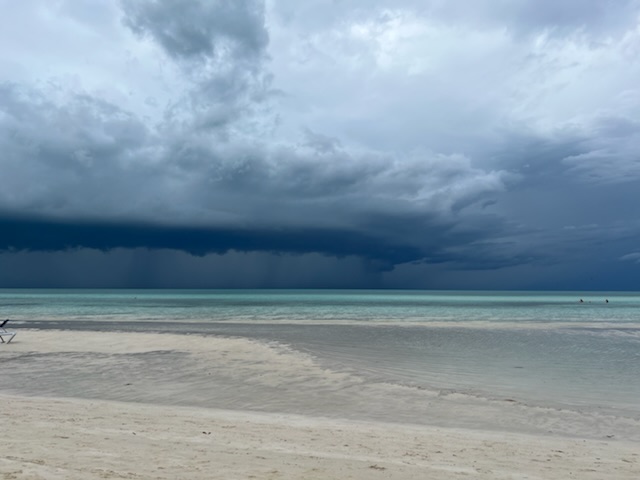The other day when the light turned green at Arlington and Bronson, I paused for a second before easing Henry (remember, that’s the name of my car) left on Bronson, and past the Burrito Gringo I do not go to. The pause saved me from being hit by yet another car racing through the red light of this problematic intersection. The Centretown News, our neighbourhood paper, has done stories on this “dangerous street.”
But, I wasn’t hit by a car. The car did not hit me. I was completely okay.
But my imagination took off like a rocket. Two more blocks and I was strapped into my Mind Ambulance, frantic calls had been made, and other people were crying (sobbing, even!) because of one bad apple that rolled down Bronson. All of this, I imagined. I fought back tears, which is how far I can take these things.
But it didn’t happen, I reassured and reminded me.
This doomsday posture is not new. As a kid, I dreamed about Viking wars raging in our basement and people I loved meeting disastrous — often preposterous, extremely unlikely endings — which would make me weepy on the #11 bus coming home from MicMac Mall on a rainy Saturday.
What an adorable little weirdo. Elena, my beloved spiritual director, might encourage me to go give that kid a hug, in my imagination. (I would throw in some advice on glasses and encouragement to push for the braces.)
I have been learning, especially in the last few months of the last year and a bit, to try to use my imagination for good, instead of bad. To chase hope with my fanciful thinking, instead of despair. The optimists among us are very fortunate. It takes some work, for some of us, to imagine things working out. To think that it’s just as likely — maybe even more likely! — that things will be somehow kind-of enough okay on a Wednesday afternoon.
I shared my Upsetting-Accident-That-Did-Not-Actually-Happen story with a caring friend who advised me that, imaginatively speaking, things can work out in multiple ways. The options aren’t just good or bad. There is also medium-okay, and slightly-not-great, and a-little-bit-better and not-that-bad-really, along with utterly fantastic.
This was a helpful correction and reminded me of the role imagination, with practice, can play in our daily lives.
We often think imagination is mostly to do with children folding and taping castles from boxes or a novelist typing a new world into our old and creaky one. But imagination also has so much to do with what is true, in both life and writing.
Creative non-fiction, for example, is what I write the most often. It’s always true, but it’s written with some spark and pizazz (hopefully). We should go for the pizazz whenever possible, in writing and life. The Minister’s Wife is a spiritual memoir, and also creative non-fiction. Holiness Here is a spiritual formation book, but I still used my imagination to write about those true things creatively. I tap on my imagination’s shoulder when I need help with metaphors, similies and even the odd adjective (but not too many adjectives!) that help make the writing, and maybe the reading, better.
So, I’m using my imagination to write non-fiction. And we are all right here living non-fiction lives.
Our imagination can help us do more than lose our marbles over the floor of the car and under the driver’s seat when we’re simply trying to get to Home Depot in one piece. We can actively imagine things going well. We can imagine grand adventures and also good weather on Saturday and peace over all the earth, and that I will find a dress that I like and that also fits me well. I can imagine a good summer about to unfold, and the smell of bacon in the morning to help me anticipate the new day ahead.
Our imagination can take us on a gentle, beautiful walk instead of a ride on a rollercoaster always about to go off the rails. I can imagine my book launch will go well on Saturday, instead of imaginatively imagining no one showing up or the crowd turning against me in some kind of bizarro book launch colossal fail, or even worse, falling down the stairs in my new dress.
We can use our imagination for beauty’s sake. For hope and even joy.
In Holiness Here I write about how, in our church, we pray weekly for wars to cease all over the world, which is extremely unlikely to happen, and certainly not the way things seem to be going. And yet we pray very imaginatively every week for it to be so, believing someday it might and that it could, because we know it should.
Last year, my boss asked us to read Walter Bruggeman’s The Prophetic Imagination. I loved it. He ties hope into imagination with a bow.
“Hope, on one hand, is an absurdity too embarrassing to speak about, for it flies in the face of all those claims we have been told are facts. Hope is the refusal to accept the reading of reality which is the majority opinion; and one does that only at great political and existential risk. On the other hand, hope is subversive, for it limits the grandiose pretension of the present, daring to announce that the present to which we have all made commitments is now called into question.” — Walter Bruggemann.
Hope and imagination have so much to do with each other. Our hope, lifted higher by our imagination, and our imagination tamed and also freed by our hope, help us to believe that our lives can still yet, or yet again, become beautiful in some new way, or maybe many new ways.
Our imaginations can help us answer the simplest of questions: What are you doing tomorrow? and What are you doing next year? with answers that might surprise our friends and our very selves.
So, if you also sometimes imagine bad things happening left, right and centre, in front and in behind and underneath you and above your pretty little head, as our moms used to say, will you join me in an act of rebellion and consciously try to think our way down the path that floats through the meadow and into the daisies instead? Can your holy imagination come into play, and help you play with some new ideas and patterns of thinking? Imagine that. The Vikings in the basement are now playing Uno instead of all that fighting. There’s a very high probability that everything might — fingers crossed and knees bent — all be okay

